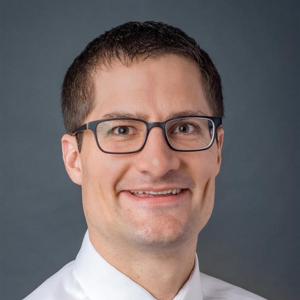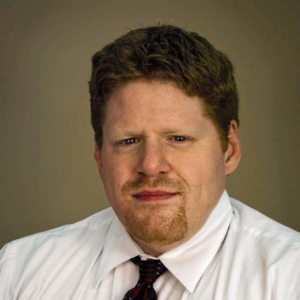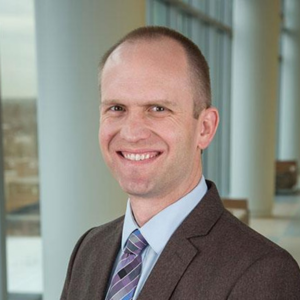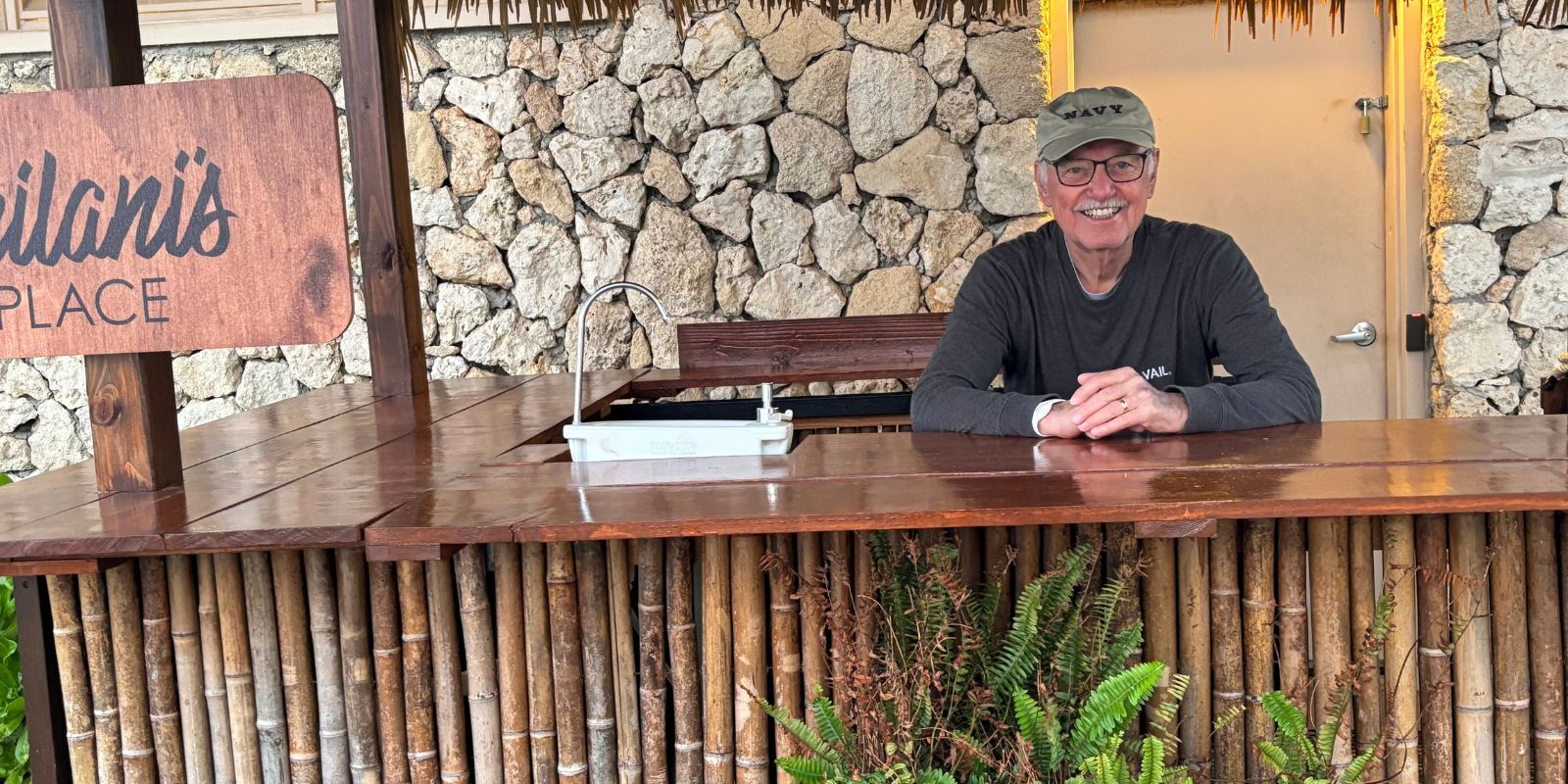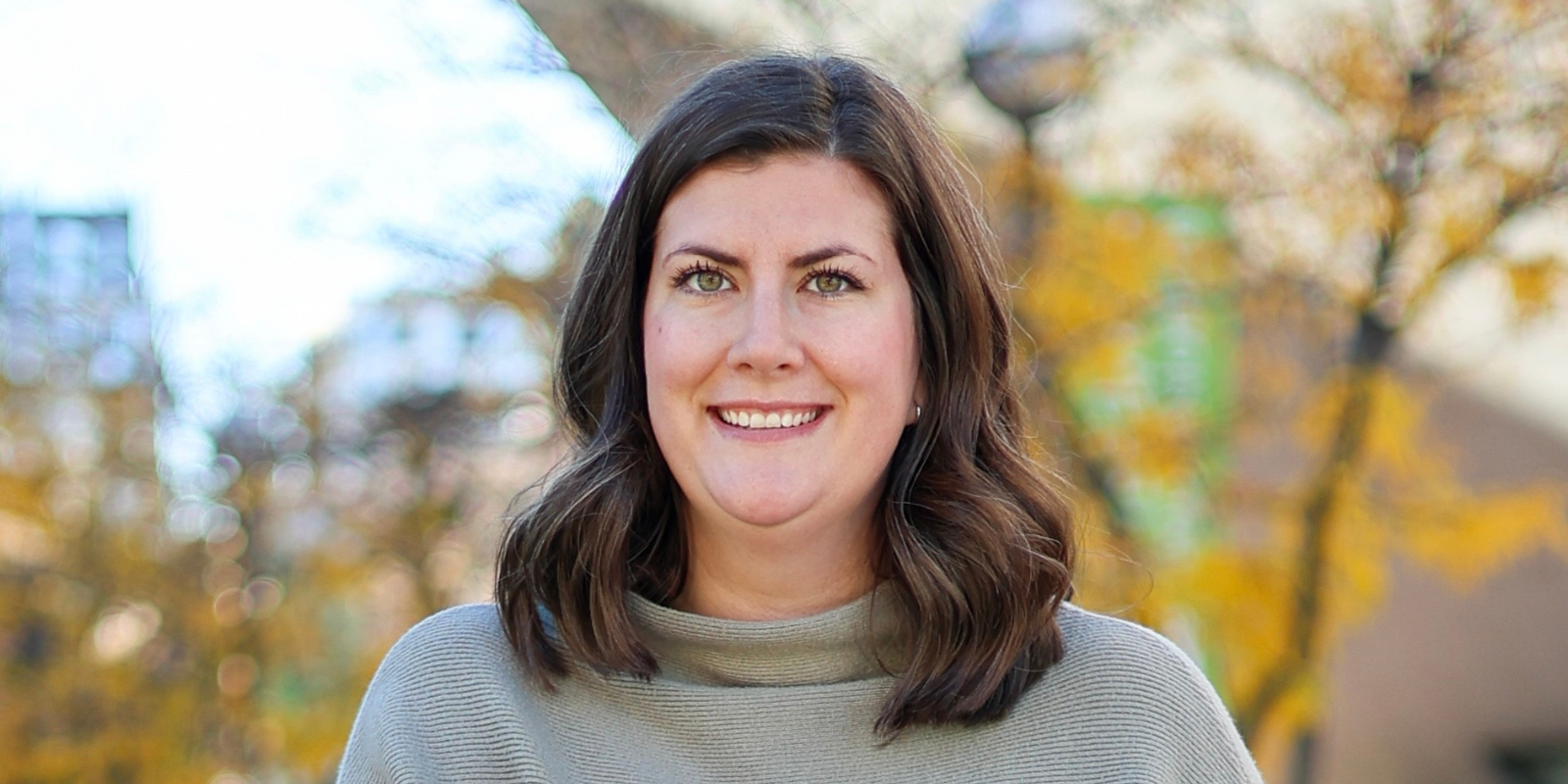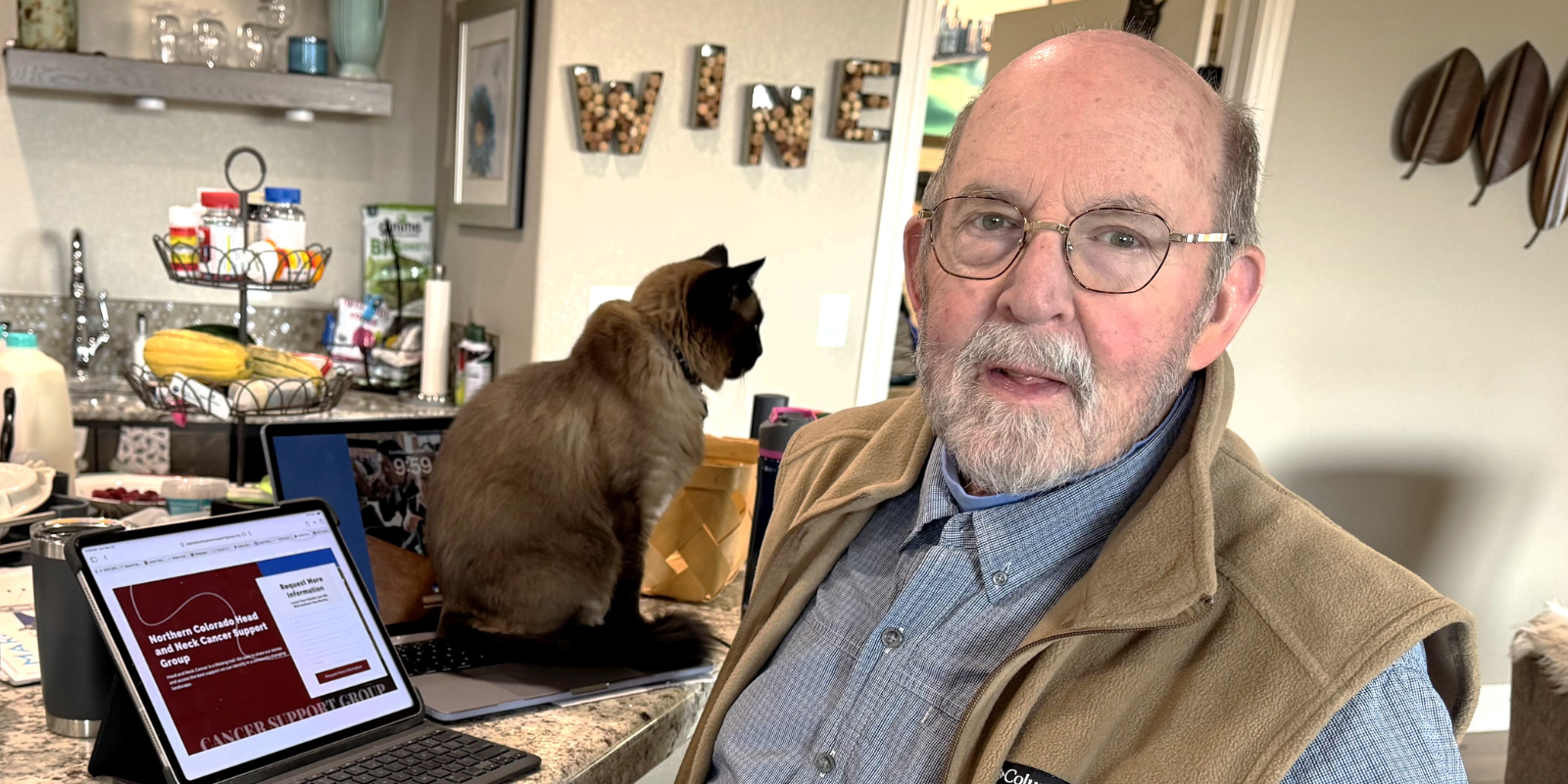Alex Cooper relishes a challenge. Armed with a New Yorker’s moxie, an entrepreneur’s savvy, and an athlete’s determination, he has launched startups, has competed in Ironman triathlons, and offers motivational messages in blogs, videos, and social media posts as the “Iron CEO.”
Cooper, 61, lives much of his life on bikes, on skis, in the water, and in running shoes. “Over a lifetime of endurance sports and personal challenges, I have developed the mindset for enduring by building the physical and mental strength to overcome adversity,” he says.
He draws on that mindset now as he faces the greatest adversity of his life – an aggressive brain tumor.
Cooper was diagnosed in January with glioblastoma, a fast-growing form of brain cancer. According to the National Brain Tumor Society, the five-year survival rate for glioblastoma patients is about 7%, and the average length of survival for patients is about 8 months.
A team at the University of Colorado Cancer Center has helped Cooper fight his cancer through surgery, radiation treatment, and chemotherapy.
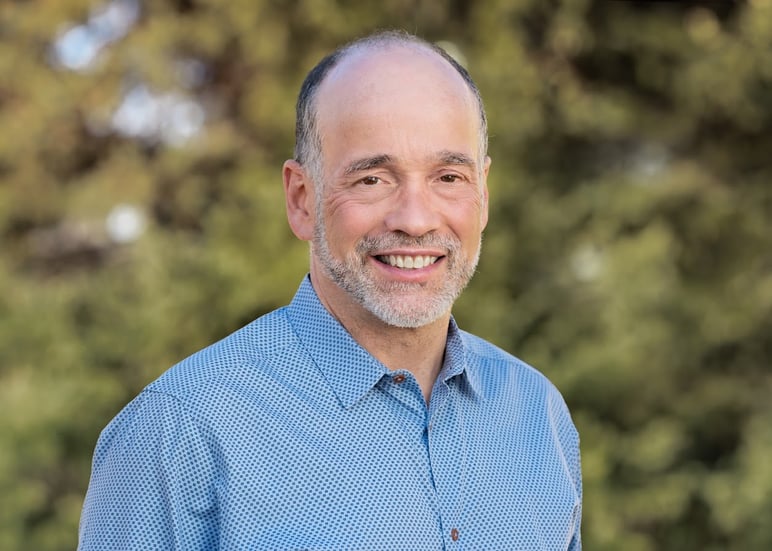 Alex Cooper. Photo provided by Alex Cooper.
Alex Cooper. Photo provided by Alex Cooper.
More than a journey
Cooper, a New Yorker who moved to Colorado six years ago, is the son of two Holocaust survivors who immigrated from Hungary. His father died when he was 3 months old; his mother lived with breast cancer for more than 25 years. That background “informs my life in a number of ways, including my own experience dealing with cancer, and has a lot to do with my own mindset as a survivor,” says Cooper.
When he turned 52 in 2014, he graduated from shorter triathlons to a longer, Ironman-distance event: a 2.4-mile swim, a 112-mile bicycle ride, and a 26.2-mile run. “I finished it, and said, OK, I checked it off the list and I’m good,” Cooper says. “A couple of days later, I realized it just spoke to me. I really liked it. It had some meaning for me beyond all the other things I had done.”
He decided he would strive to finish one Ironman per year for 10 years. It took him nine years; he finished his 10th in Wisconsin on Sept. 11, 2022.
“That whole Ironman journey, it became more than a journey, it became more than just something I love doing,” he says. “It became who I am. It became my brand. It became my website. It became me.”
And Cooper says his Ironman experiences helped “prepare me for the journey I’m on now.”
Noticing symptoms
Cooper had already decided that his September 2022 Ironman would probably be his last “for now.” A month later, he says, “I started to notice weird things, a few physical symptoms. My right arm felt like it didn’t know where it was. When I was driving, sometimes I thought my foot had moved from the brake to the gas, but it was still on the brake.” He had trouble typing.
He went to a general practitioner who performed basic neurological and blood tests and advised him to see a specialist, who advised him to get an MRI exam. Then came the glioblastoma diagnosis in early January.
Cooper waited until he and his wife returned from a long-planned vacation in Belize in Central America to break the news to her, and then to his grown kids. Two weeks later, he had surgery to remove as much of the tumor as possible.
When he first met with his surgeon – D. Ryan Ormond, MD, PhD, a CU Cancer Center member and associate professor of neurosurgery – Cooper said Ormond inspired confidence. The surgeon “shook my hand and my wife’s hand, looked us in the eye, got to know us, and that meant everything to me. He treated me as a human being.”
Cooper says he readily agreed to stay awake through the surgery on his brain tumor so he could communicate with the surgical team and undergo cognitive tests through the process. “To make a bad pun, it was a no brainer. I thought, here was my chance to stay actively involved in my surgery and improve the chances of success. The cognitive therapist was holding my hand and was the most compassionate, understanding person. It was a great experience, it really was.”
Going above and beyond
After recovering from surgery, on Valentine’s Day, Cooper encountered Timothy Waxweiler, MD, an assistant professor of radiation oncology, and Douglas Ney, MD, a professor of neurology. They put him through six weeks of daily radiation treatments five days a week, targeting the tumor site, along with nightly chemotherapy pills. That was followed by maintenance therapy involving daily chemotherapy for five days every four weeks. Cooper has also been given speech and occupational therapy.
“He’s done above and beyond all the treatments that we've asked of him, and he's always asking, ‘What else can I do?’” Waxweiler says.
Meanwhile, Cooper quickly resumed his exercise routine. He walked three miles on his first day home from the hospital, was back on a stationary trainer after two weeks, and was skiing after six weeks. Sometimes Cooper would go skiing on Friday mornings before his afternoon radiation session.
“Friends have said to me, ‘A lot of people, given what you’ve gone through, would crawl into a ball on their bed and get ready to die.’ And that’s just not who I am,” Cooper says.
Waxweiler says that Cooper’s case demonstrates the value of seeking help quickly “if there’s something unusual going on and you develop neurological symptoms.”
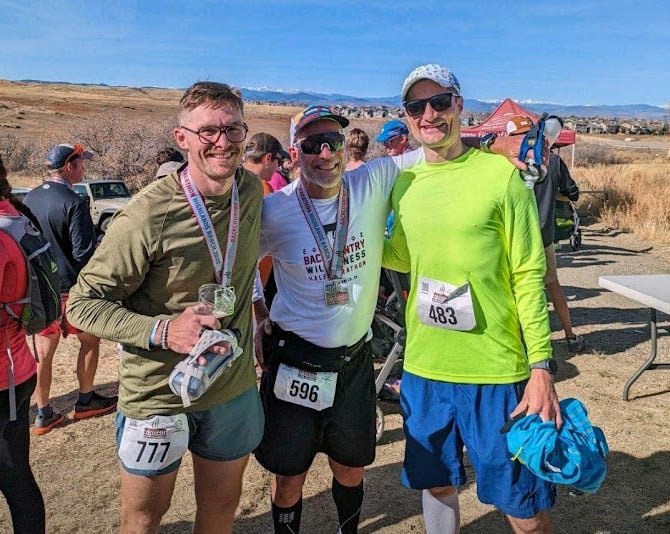 Alex Cooper (center) with his radiation oncologist, Timothy Waxweiler, MD (right), and radiation therapist Tyler Broom (left) at the Backcountry Wilderness Half Marathon in Highlands Ranch, Colorado, Nov. 4, 2023. Photo provided by Alex Cooper.
Alex Cooper (center) with his radiation oncologist, Timothy Waxweiler, MD (right), and radiation therapist Tyler Broom (left) at the Backcountry Wilderness Half Marathon in Highlands Ranch, Colorado, Nov. 4, 2023. Photo provided by Alex Cooper.
Stoked and amped
In the U.S., about 80,000 people per year are diagnosed with a primary brain tumor. Ney says that of that total, about 20,000 to 25,000 people per year are diagnosed with a glioma, of which a glioblastoma is an aggressive Grade IV type. “But even though they’re rare, there’s a lot of morbidity, so it’s a pretty serious diagnosis.”
“It’s a tumor that ultimately we expect to come back, and ultimately is terminal,” Waxweiler says of Cooper’s glioblastoma. He, Ney, and their colleagues have been striving to prolong and maintain the quality of Cooper’s life.
Both doctors describe their patient as relentlessly positive through his ongoing treatment.
“He’s always so stoked and amped about life,” Waxweiler says. “He’s insanely impressive. He's gotten half our staff to run races with him or sign up for races, myself included. He brings everybody up around him and motivates us as much as we're helping him. He’s certainly motivated me.”
"He's a very high-energy, gregarious type of type of guy who's not willing to let things stop him from doing what he wants to do,” Ney says. “It's great when you can live like that.”
Ready to take on cancer
As he faces his future, and as he works on a book about his experiences, Cooper has managed to stay upbeat.
“I try not to project too much into the future,” he says. “It doesn’t do you any good. I’m doing well, but I’m realistic that there is no cure for this cancer. The long-term prognosis is not great. But most of all, I’m grateful. I call it my little cheap parlor trick that I feel so good. My quality of life hasn’t suffered. I’m a man who likes to squeeze the most out of his life, and I have a lot of joy in life. And this has made me appreciate my wife, my children and my family like nothing else possibly could. So in that way, I’m better off.”
Or as he wrote in a recent LinkedIn post: “My dedication to endurance has taken me to a great place in my life. It has transformed me physically, emotionally, and mentally into who I am today: a man ready to take on cancer.”
All photos at top provided by Alex Cooper. From left: Cooper competes at the SBT GRVL gravel bike race in Steamboat Springs, Colorado, on Aug. 20, 2023; Cooper at the Backcountry Wilderness Half Marathon in Highlands Ranch, Colorado, Nov. 4, 2023; Cooper at the Loveland (Colorado) Lake to Lake Triathlon, June 24, 2023.

